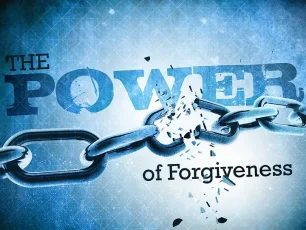Forgiveness is a profound and complex concept that has the power to transform lives, relationships, and communities. It’s a choice that requires courage, humility, and a willingness to let go of resentment and anger.
The Weight of Unforgiveness
Unforgiveness can burden us with emotional pain, bitterness, and resentment. When we hold onto grudges, we allow the hurt to define us, dictating our thoughts, emotions, and actions.
“The unforgiving heart is like a prison, locking us in a cycle of pain and anger.” – Ufreverse
The Amish forgiveness story is a powerful narrative that showcases the profound principles of forgiveness and community among the Amish people, particularly highlighted by a tragic event that occurred in 2006. On October 2, 2006, in Nickel Mines, Pennsylvania, a gunman named Charles Carl Roberts IV entered an Amish schoolhouse and took ten young girls hostage. He tragically shot five of them before taking his own life. The incident shocked the nation and brought intense media attention to the Amish community, known for their simplicity, strong family ties, and deep faith.
In the immediate aftermath of the shooting, the response of the Amish community was striking. Instead of expressing anger or seeking vengeance, the Amish extended forgiveness to the Roberts family. They recognized that Charles Roberts was also a victim of his own pain and struggles, and many community members attended his funeral to offer their condolences and support to his grieving family. This act of forgiveness was rooted in their Christian beliefs, which emphasize love, compassion, and the importance of forgiving others. Amish leaders explained that they wanted to demonstrate the power of forgiveness as a way to heal not only themselves but also to set an example for the world.
One notable Amish leader, Bishop Joseph Stoll, articulated the community’s view by stating, “We want to forgive the man who did this. We believe that it is part of our faith to forgive.” The community’s willingness to forgive and their commitment to healing underscored their values and beliefs. The response of the Amish community resonated deeply with people around the world. It sparked discussions about the nature of forgiveness, reconciliation, and the ways in which individuals and communities cope with unimaginable grief and loss. Many found inspiration in the Amish way of life, viewing their actions as a testament to the strength of faith and the possibility of moving forward despite tragedy.
In the years following the shooting, the Amish community continued to emphasize healing and reconciliation. They focused on rebuilding their lives and supporting each other, showing that forgiveness can be a powerful force in overcoming grief and trauma. The Nickel Mines incident remains a poignant reminder of the potential for compassion and understanding, even in the face of great tragedy. The Amish forgiveness story serves as an example of how faith and community can guide individuals through the darkest times, offering hope and healing through the act of forgiveness.

The Freedom of Forgiveness
Forgiveness frees us from the shackles of resentment, allowing us to:
- Heal emotional wounds
- Release the burden of anger
- Restore relationships
- Find peace and closure
- Experience spiritual growth
Biblical Perspectives on Forgiveness
“Forgive us our debts, as we also have forgiven our debtors.” – Matthew 6:12 (NIV)
“Be kind and compassionate to one another, forgiving each other, just as God forgave you.” – Ephesians 4:32 (NIV)
Here are some Steps to Forgiveness
- Acknowledge the hurt
- Choose to forgive
- Let go of resentment
- Practice empathy
- Seek support
Challenges to Forgiveness
- Self-righteousness
- Lack of empathy
- Fear of vulnerability
- Unaddressed emotional pain
- Cultural or societal expectations
The Power of Forgiveness in Action
Forgiveness can:
- Restore relationships
- Heal emotional wounds
- Promote spiritual growth
- Break cycles of violence
- Transform communities
Forgiveness is a powerful choice that can transform lives and relationships. By choosing to forgive, we release the burden of resentment and open ourselves to healing, peace, and spiritual growth.
Reflection Questions
- What unforgiveness am I holding onto?
- What steps can I take to forgive?
- How can I practice empathy and understanding?
Prayer
“Dear God, help me to forgive those who have wronged me. Give me the strength to let go of resentment and anger. Show me the power of forgiveness in my life.”

